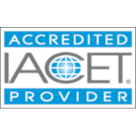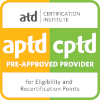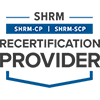Product Details
Topics Covered
- Nonprofit grant writing
- Capital grants
- Endowment grants
- Matching funds
- Fundraising
- Stages of grant writing
- Identifying and establishing a need
- Research
- Establishing relationships
- Alignment
- Grant proposal
- Follow-up after winning or losing a grant award
- Grant writing case studies
Key Features
- Mobile-friendly
- Audio-enabled
- Badge and credit-awarding
- Real-world case studies
- Fully accessible
- Games & Flashcards
- Expert-supported
- Video content
Course Preview
Course Description
Learning Outcomes
- Discuss the importance of grant writing to nonprofits and other organizations seeking funding
- Describe how capital grants and endowment grants can be integrated into fundraising efforts, including matching funds
- Explain how grant writing and fundraising represent complimentary methods of ensuring a nonprofit's financial stability
- Outline the six stages of the grant writing process
- Discuss the process of identifying and establishing a need for funding (Stage One)
- Describe how to research grantmakers and available grants (Stage Two)
- Explain the process of establishing relationships with potential funders (Stage Three)
- Discuss the importance of alignment between a nonprofit and a funder's mission (Stage Four)
- Outline the grant writing process (Stage Five)
- Explore tools and techniques employed in writing the grant proposal
- Explain how a nonprofit should follow-up after winning or losing a grant award (Stage Six)
- Outline best practices for grant writing
- Apply your understanding of the grant writing process to case studies covering the six stages
Notes
This course has an "Ask the Expert" feature, which submits your questions directly to an expert in the field you are studying. Questions are answered as quickly as possible and usually within 24 hours.
As an Accredited Provider, MindEdge offers for its learning events that comply with the Continuing Education and Training Standard.
Learners must achieve an average test score of at least 70% to meet the minimum successful completion requirement and qualify to receive credit. Learners will have three attempts at all graded assessments.




